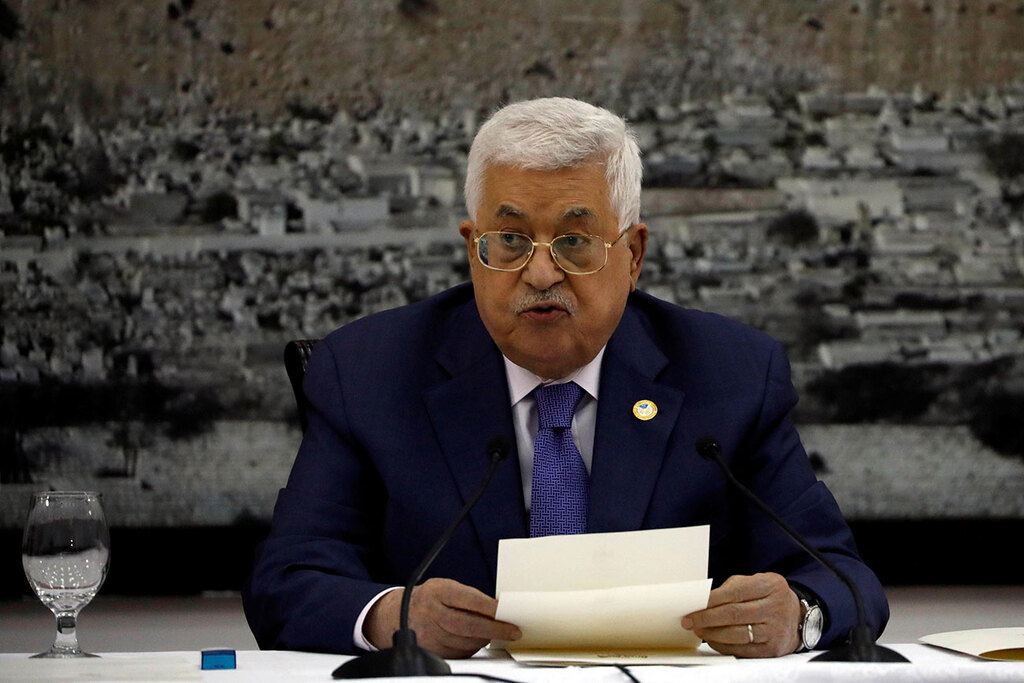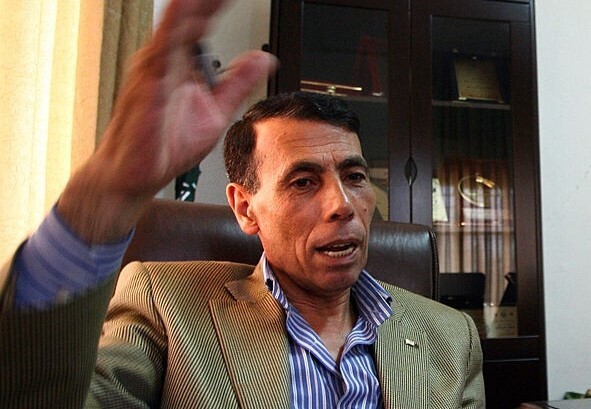Getting your Trinity Audio player ready...
Palestinian President Mahmoud Abbas is facing the toughest fight of his political life. His 16-year rule is on the line after he called for parliamentary and presidential elections, set for May and July respectively.
It is the first Palestinian elections in 15 years.
More than 93 percent of Palestinian eligible voters have registered for the upcoming elections. This is not a good sign for Abbas as the high percentage may reflect the people’s hunger for change.
Peace negotiations with Israel have been frozen since 2014, and there’s no end in sight for a political resolution to the Israel-Palestinian conflict. The economic situation in the Palestinian territories is teetering on the verge of collapse, and the internal Palestinian divide is getting deeper.
Corruption is rampant, as well as an erosion of democracy, and a crackdown on personal freedoms and civil rights.
This situation is taking place under Abbas’ rule.
It is a one-man rule, and he has total and unprecedented control over the Fatah Party, the PA, and the Palestine Liberation Organization (PLO).
The autocratic Palestinian president currently is facing a legitimacy crisis, and the only way out of it was to call for elections.
But Abbas’ decree to hold elections, announced in January, has exposed him to the electorate, throwing his political future into the unknown, and providing opponents from within the Fatah movement, which he chairs, a rare opportunity to challenge his rule.
Many of his critics argue that Abbas is using the elections to legitimize himself and make himself relevant again: at home, in the region and in the international arena.
The move has weakened Abbas. Despite having a relatively firm grip on power and firm security control in the areas under the PA’s rule in the West Bank, Abbas’ popularity and support among Palestinians is dwindling.
According to a recent poll by the Palestinian Center for Policy and Survey Research, 62% of Palestinians want Abbas to resign.
5 View gallery
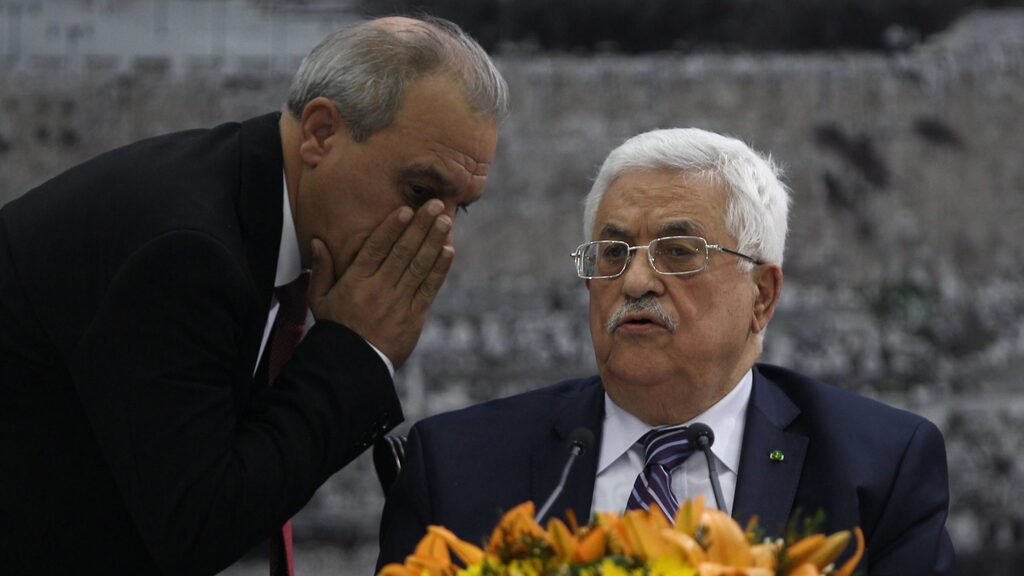

PA intelligence chief Majid Faraj whispers to Palestinian President Mahmoud Abbas during a meeting in Ramallah
(Photo: AFP/Getty)
Abbas surrounds himself with a tight circle of people, mainly PA General Intelligence Service head Majid Faraj and PA Civil Affairs Minister Hussein al-Sheikh.
Sheikh’s influence has been steadily increasing recently and he is involved in many aspects of Palestinian politics.
Over the years, the 86-year-old Abbas has accumulated a long list of enemies and critics. Some of these fierce adversaries are from the rival Hamas movement that governs the Gaza Strip, others come from his own party, Fatah, the largest and most popular Palestinian group.
Since the election announcement, many Palestinian figures have come out to oppose an Abbas run for the presidency.
These influential Palestinians have sent messages or generally made their position known that they’d prefer to see Abbas quietly retire.
Hatem Abdel Qader, a member of the Revolutionary Council of the Fatah movement, told The New Arab newspaper last week that Abbas should not run in the upcoming presidential elections.
“We hope that the president will not run and remain a symbol of the Palestinian people, and that he will remain president of the Palestine Liberation Organization, which is the broader framework of the Palestinian cause,” Qader said.
The rift is so deep, that it has become almost impossible to restore.
Unlike in the past, Palestinian officials are standing up to their autocratic leader, speaking out and going public with their grievances.
And the internal Fatah opposition to Abbas is growing.
Fatah, long the most popular faction, is facing an intra-party split ahead of the scheduled elections. Abbas, who is expected to run again for president, wants to project at least a semblance of unity as his Fatah Party deals with its own internal turmoil.
Abbas has directly threatened Fatah officials and members of the Central Committee if they oppose him and the Fatah candidates’ list he supports in the upcoming elections.
In a recent meeting between Abbas and Nasser Qudwa, a member of the Fatah Central Committee and a critic of Abbas, a verbal altercation erupted.
Qudwa has come out against recent understandings between the Palestinians’ two largest factions – Fatah and Hamas – on the upcoming elections, saying that they are in “cahoots” and that they agreed to hold elections only to “preserve” their own interests.
He called for a change and the rebuilding of the Palestinian political system.
“Reforming the current system will not work,” he said.
“What is happening here is that after years of systematically dismantling the movement, it is all coming apart now,” a top Fatah official told The Media Line.
Abbas has “weakened” Fatah for the sake of strengthening his position and staying in power, and this has “finally caught up with him,” the Executive Committee member said.
Slowly but surely others are rebelling and rising against Abbas to “save” Fatah.
Part of the problem could be that Abbas represents the old guard.
Many accuse Abbas of alienating his base, and some go as far to say that he has “destroyed” Fatah, while centralizing power in his own hand and in the small circle of confidants that surround him, such as Faraj and Sheikh.
These men, in the eyes of many, have insulated Abbas from Palestinian public opinion and from what is really happening on the ground, and they are the two confidants that have full, unmitigated access to Abbas, while older veteran Fatah leaders are either shunned or marginalized.
Many Palestinians are calling for gutting the Palestinian Authority political system entirely and are demanding that it be rebuilt from the bottom up.
Sources in Ramallah say that Abbas and the tight circle around him are growing frustrated with the opposition.
5 View gallery
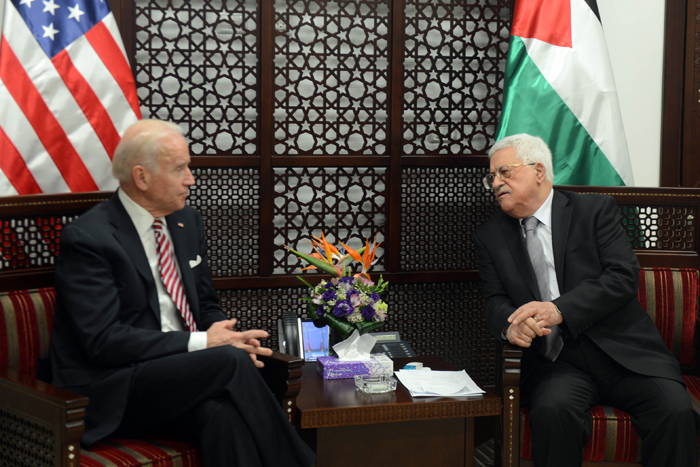

Then-U.S. Vice President Joe Biden meeting with Palestinian President Mahmoud Abbas in Ramallah in 2016
The election of Joe Biden as U.S. president had a lot to do with Abbas’ decision to run for office again, too.
Abbas wants to renew the legitimacy of Palestinian institutions in the world’s eyes, and is hoping to re-engage with Washington.
He is desperate to conclude the elections so that he can renew his legitimacy in the eyes of the international community and appease the demands of donor countries, as he tries to connect with the new US administration.
“It’s a nod to Joe Biden and the new administration that they are a democracy and responding to the requirements of the moment,” said Hanan Ashrawi, who until recently was a member of the executive committee of the PLO. “They are sending signals that they are willing to play ball,” she said.
In more bad news for Abbas, Arab political and financial aid has shrunk in recent years.
He seems to have lost the backing of many of the Arab governments, mainly Egypt, the United Arab Emirates, Saudi Arabia and, to an extent, Jordan.
The leaders of these countries are frustrated with Abbas’ approach to the internal Palestinian divide, and the lack of a coherent plan from the PA on how to approach the conflict with Israel.
Also, with the recent normalization deals between Israel and Gulf states, as well as Morocco and Sudan, Abbas has seen little attention given to him by the Arab world.
5 View gallery
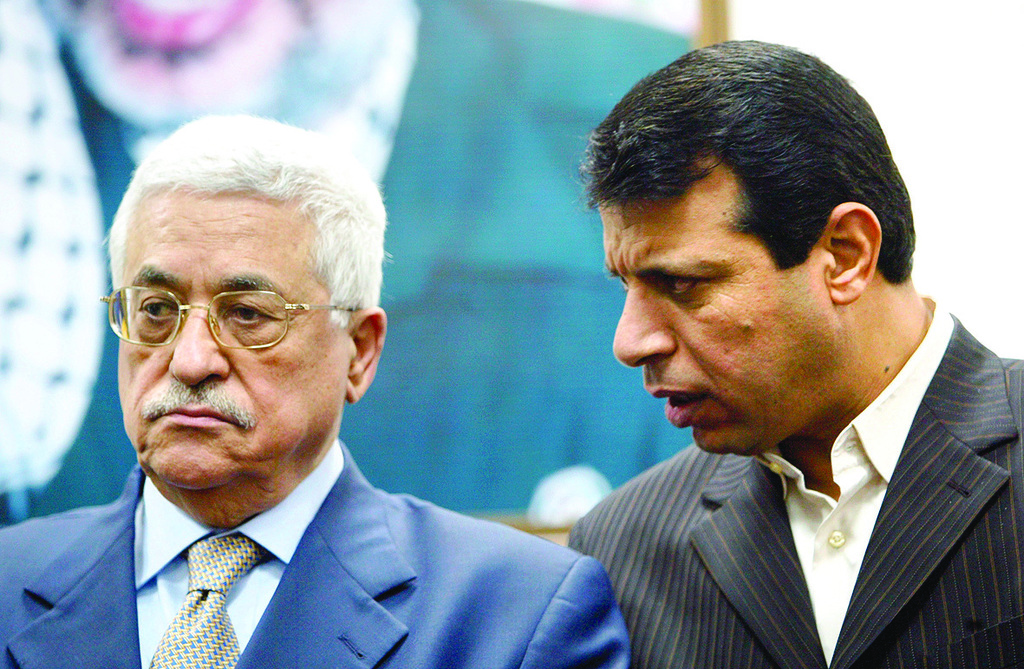

Palestinian President Mahmoud Abbas with ally-turned-opponent Mohammad Dahlan
(Photo: EPA)
Egypt and the UAE would like to see Mohammad Dahlan, a Fatah rival who lives in exile in Abu Dhabi and works as an advisor to the powerful crown prince, play a major role in Palestinian politics.
All this has led many to question if the post-Abbas era is already in progress, and many concede that the future of the Palestinians’ largest and most popular movement, Fatah, is deeply uncertain, and so is the future of its leader.
Reprinted courtesy of The Media Line


